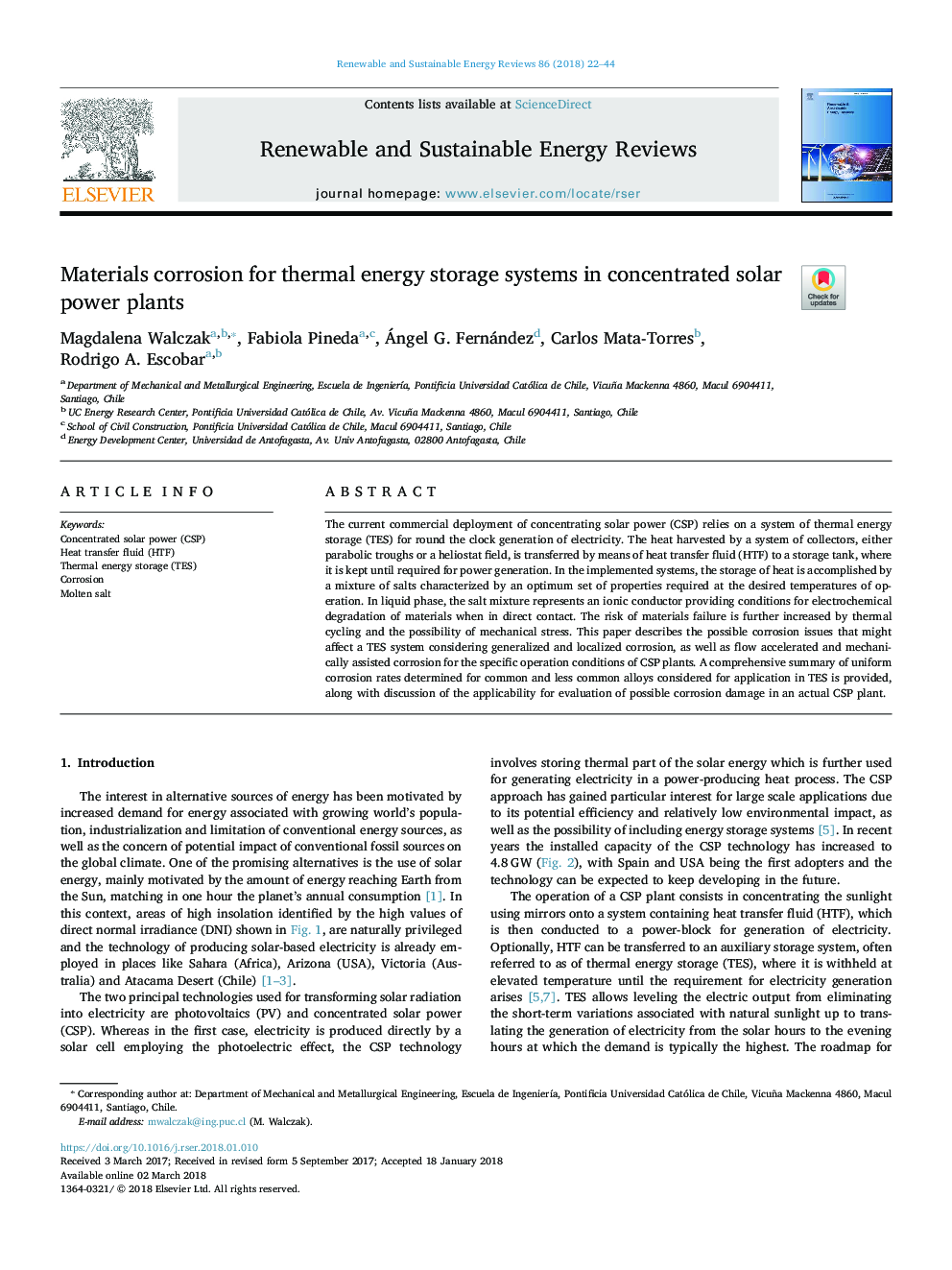| Article ID | Journal | Published Year | Pages | File Type |
|---|---|---|---|---|
| 8111568 | Renewable and Sustainable Energy Reviews | 2018 | 23 Pages |
Abstract
The current commercial deployment of concentrating solar power (CSP) relies on a system of thermal energy storage (TES) for round the clock generation of electricity. The heat harvested by a system of collectors, either parabolic troughs or a heliostat field, is transferred by means of heat transfer fluid (HTF) to a storage tank, where it is kept until required for power generation. In the implemented systems, the storage of heat is accomplished by a mixture of salts characterized by an optimum set of properties required at the desired temperatures of operation. In liquid phase, the salt mixture represents an ionic conductor providing conditions for electrochemical degradation of materials when in direct contact. The risk of materials failure is further increased by thermal cycling and the possibility of mechanical stress. This paper describes the possible corrosion issues that might affect a TES system considering generalized and localized corrosion, as well as flow accelerated and mechanically assisted corrosion for the specific operation conditions of CSP plants. A comprehensive summary of uniform corrosion rates determined for common and less common alloys considered for application in TES is provided, along with discussion of the applicability for evaluation of possible corrosion damage in an actual CSP plant.
Keywords
Related Topics
Physical Sciences and Engineering
Energy
Renewable Energy, Sustainability and the Environment
Authors
Magdalena Walczak, Fabiola Pineda, Ángel G. Fernández, Carlos Mata-Torres, Rodrigo A. Escobar,
